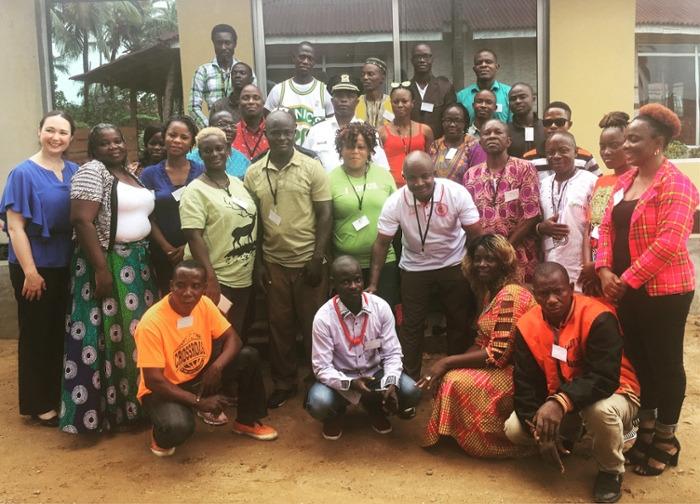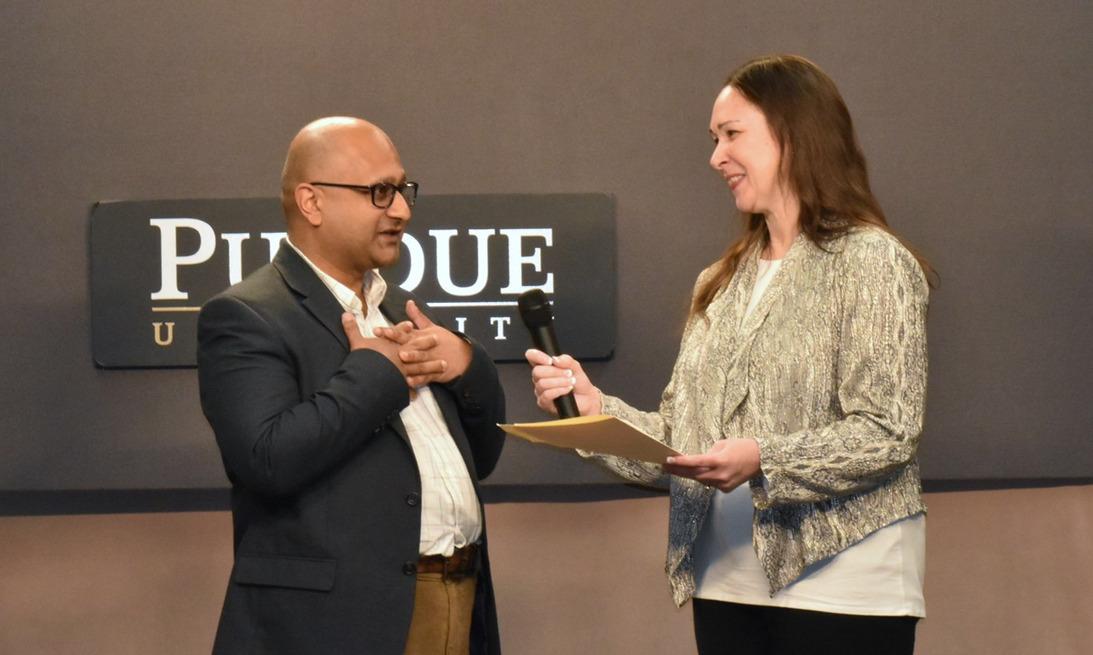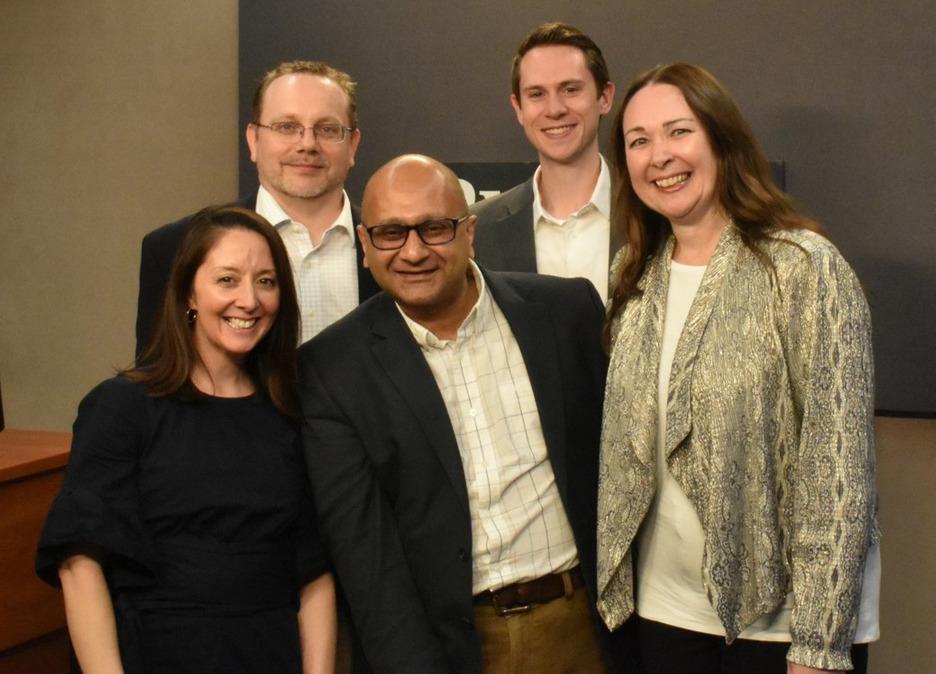
4 minute read
Purdue Peace Project
PURDUE
Written by Purdue Peace Project Staff
Advertisement
In 2018, the Purdue Policy Research Institute became the host institute for the Purdue Peace Project (PPP), a university-based political violence prevention initiative that does peacebuilding work in areas threatened by such violence. It conducts engaged research to prevent political violence and advance
knowledge about such violence at the local, community level. The program is directed by Stacey Connaughton (Director of Purdue Policy Research Institute and Associate Professor in The Brian Lamb School of Communication) with the assistance of Elis Vllasi (Associate Director of PPP), and graduate research assistants, Jessica Eise, Meghana Rawat, and Tiwaladeoluwa Adekunle, along with numerous past graduate and undergraduate students. PPP has engaged in peacebuilding initiatives in Ghana, Liberia, Nigeria, and El Salvador.
With the leadership of country directors and volunteers in West Africa, PPP has convened everyday citizens to help them address immediate threats of violence in their communities. PPP is committed to peacebuilding through its data-driven and locally-led approach. In this approach, the people involved in, and most affected by, violent conflict work together to create and enact their own solutions to prevent, reduce, and/or transform the conflict, with the support they desire from outsiders. PPP relies on evidence-based results to prevent political violence and seeks to impact the practice of peacebuilding in addition to scholastic research. It fosters local solutions to conflict, as data and experience have shown that: 1) local citizens can design, lead, and implement actions to prevent escalation of disputes in their communities into armed conflict; 2) dialogue can lead to effective action toward preventing violence; and 3) peacebuilding efforts stand the best chance of being effective if they originate from individuals local to the conflict.

Since its founding in 2012, PPP, with the generous financial support of Milton Lauenstein and others, has supported a total of 16 locally-led peacebuilding initiatives that have addressed issues arising from: election related violence (Ghana and Liberia); intra-/inter-ethnic divisions (Ghana); land disputes (Ghana and Nigeria); chieftaincy disputes (Ghana); tensions around natural resources (Liberia and El Salvador); Ebola (Liberia); and other issues.
PEACE PROJECT
PPP’s methodology for selecting its projects is systemic, consultative, and grounded in data from a variety of sources. Prospective projects are identified by PPP team members who monitor reputable early warning sign databases for the likelihood of political violence, and country directors who are in contact with local citizens in target countries. Once a possible project is identified, team members engage in desk reviews and informal conversations with local citizens to learn about the local context, ascertain if the PPP approach may be appropriate, and see if there is interest among local citizens in collaboration. Before a project begins, the PPP Director and country directors travel to potential communities and meet with local parties to build a working rapport, learn first-hand about the issues and the context of disputes, and gauge the readiness of locals to work with PPP. Subsequently, the PPP team gathers and assesses data from multiple sources (local and international), and consults with country directors and donors to assess its involvement and effectiveness in peacebuilding projects. Finally, PPP will not undertake a project if a local community is not open to collaboration; is unable to have a measurable impact on violence prevention; or if there is a risk to the safety of PPP and local staff. Purdue Peace Project’s work has resulted in decreased levels of violence, increased cooperation between former foes, and greater peace and stability in local communities. Moreover, research that has resulted from its peacebuilding activities has led to numerous articles in peer-reviewed journals, book chapters, conference presentations, professional reports, and lectures. Also, PPP's work and findings have been covered by various local and international media outlets.
The Peacebuilding Idea Challenge


Kiran Sirah Sangh, president of International Storytelling Center and winner of the first Peacebuilding Idea Challenge, receives his award from Dr. Stacey Connaughton, Purdue Peace Project Director. PPP together with the Alliance for Peacebuilding cosponsored The Peacebuilding Idea Challenge, a competition funded by Milt Lauenstein to encourage innovative ideas on peacebuilding. More than 20 proposals from across the globe were submitted. A review committee comprised of members of academia, NGO representatives and others, upon reviewing the detailed proposals (based on the potential to reduce armed conflict, the likelihood of the idea’s wide use, and the novelty and ambitiousness of the idea) announced on May 10 the winner of this competition: The International Storytelling Center, for their video game “Europa. ” The prize carried a monetary value $10,000 in recognition of the idea.



